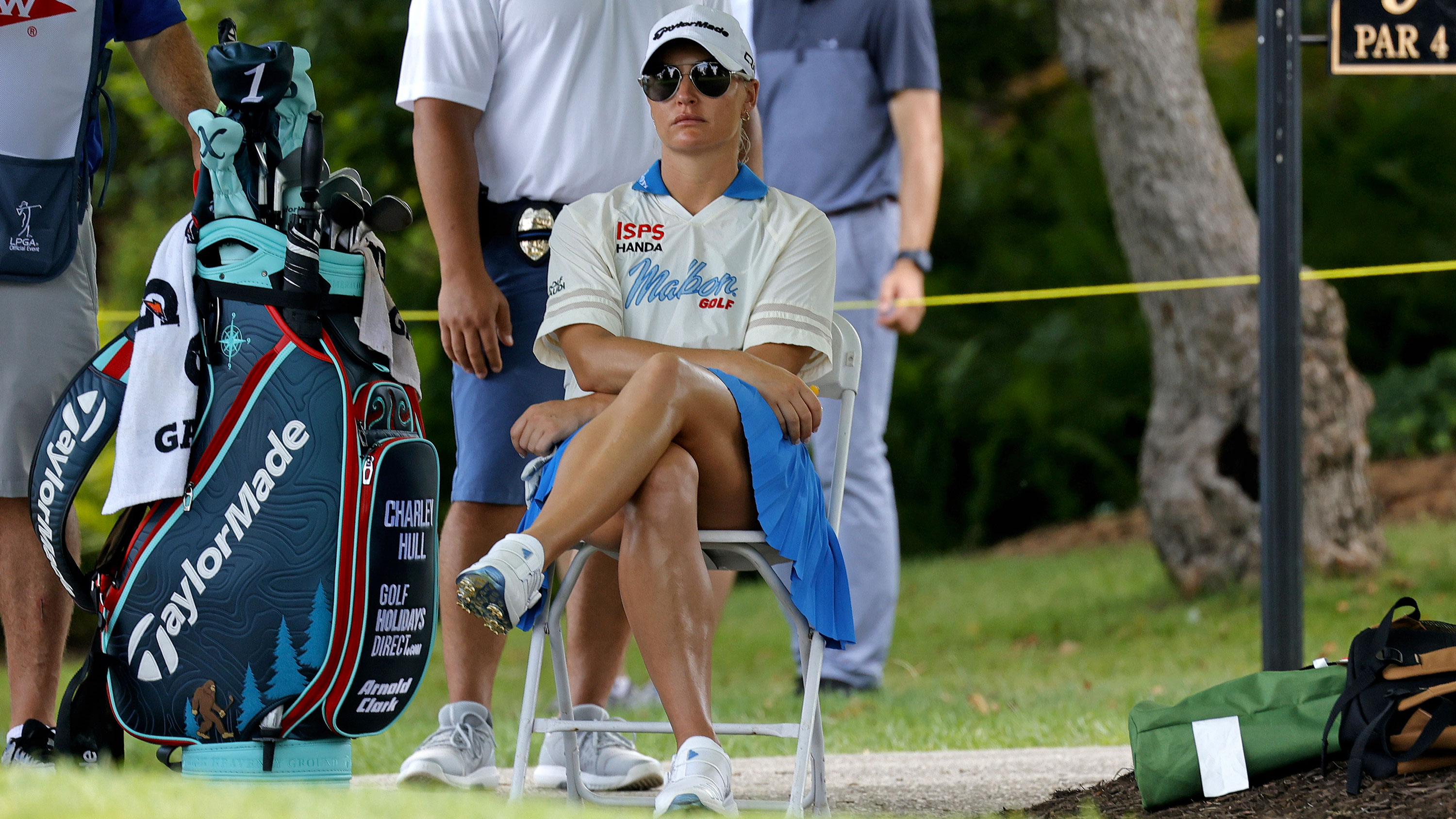
One of golf’s age-old adages is to keep up with the group in front at all costs. On the surface, this seems like a sound principle, but it’s absurdly black and white and does nothing to solve the problem of slow play.
I think it’s time to axe this impractical and often unrealistic saying from the golfing lexicon and replace it with a new mantra: don’t hold the group behind up.
Attempting to keep up with the group in front shows a willingness to do your part to alleviate slow play and adhere to the sport's etiquette, but there’s only so much it can achieve. What if the group in front is painfully slow? Does rushing up behind in that circumstance achieve anything?
If the course is busy and slow groups are prevalent, needlessly condensing sections isn’t the answer. It’s actually better in that situation to take a bit more time over each shot – you’ll get increasingly incensed if you don’t.
Unfortunately, many golf clubs seem to cram tee times together in an effort to make as much money as possible. Sometimes, golfers aren't to blame at all. Seven- and eight-minute tee-time intervals are relatively commonplace, which means there’s no breathing room on the course.
In that situation, it only takes one slow group to bring the whole course to a halt. It’s like dominos – knock one down and all the others will follow. One group having a bad day in an inopportune position can be enough to impact everyone further down the chain.

When you’re all crammed on a course, the natural instinct is to play faster as you see the group behind more often. But sometimes, this places unnecessary stress on people in front, resulting in worse golf and, you guessed it, even slower play.
So, when a course is busy, I don’t think straining every sinew to keep up with the group in front necessarily makes sense – there’s often nowhere for them to go and, if they’re having a tough time of it, the pressure from behind isn’t going to help them go any faster.
And when the course is quieter or spaced out more appropriately, I’m not sure rushing to keep up with the group in front achieves anything, either. That’s why I think the new maxim should be to not hold up the group behind.
Assuming the course isn’t rammed full and groups are largely composed of the same number of golfers, you shouldn’t feel the pressure to keep up with the group in front. Being forced to play too fast for no good reason can ruin a round and is often needless.
Key differences
My main gripe with the ‘keep up with the group in front’ motto is that it assumes an awfully high degree of homogeneity. Clearly, there is significant variance when it comes to numbers, skill levels, motivations and more.
For example, you could be playing in a four-ball behind a group of three. It’s obviously unrealistic to expect to keep up with a group containing one fewer player, so why potentially sacrifice your enjoyment to do so?
Of course, you should have a base level of respect for others on the course, but you’ve paid money – either in the form of a green fee or club membership – to be out there, so don’t feel the need to rush unnecessarily.
As long as you’re staying ahead of the group behind, play at your own pace (provided you’re not making any slow-play faux pas – leaving your bag on the wrong side of the green, using elaborate pre-shot routines, taking two minutes to line up a putt and so on).

An irksome interaction
I had a situation recently at a prestigious club that really annoyed me. Myself and my playing partner had been playing well, but we both found trouble off the tee on the 5th hole. By the time we’d reached the 6th tee, the two-ball behind was walking up to the 5th green.
Without even saying hello or exchanging pleasantries, one member told us we had to keep up with the group in front because the captain was behind.
Firstly, it was rude to not even attempt a friendly opening gambit. Secondly, the group in front was comprised of two very quick and skilled players – we were never going to keep up. Thirdly, I couldn’t care less if the captain was behind – he’s not some sort of deity (putting captains on a pedestal is another long-standing grip of mine, but that’s an article for another day).
We hadn’t made the group behind wait on a single shot, but we were needlessly pressurised. We both proceeded to make a mess of the 6th, no doubt influenced by the conversation. It really bothered me. Two mid-handicap golfers are clearly going to take longer than two low-single-figure players. That’s an obvious reality.
Some groups also play faster because they’re under more time pressure. Imagine two two- or four-balls of roughly the same collective ability. Members of one group might be in a rush as they have something to do later that day – a child’s birthday party or dinner with the other half, for example – while players in the other may have no extra plans. Some may have told their wife or husband they’d be home in four hours when clearly that wasn’t realistic. Pace of play will be influenced by these factors.
Similarly, with the rise of iGolf, some golfers may be putting a card in, while those in a different group could be having a casual knock – perhaps they play three times a week and only submit a scorecard during competitions – or playing foursomes.
Clearly, a group hitting fewer shots, giving generous gimmes and generally not caring too much about their score is going to whiz round at a much quicker pace. If I’m putting in a card, why should I chase a group in front that’s playing a more casual round?
Golf means different things to different people on different days, and a catch-all expression about keeping up doesn’t satisfactorily address that. I’m not going to needlessly stress if the group in front opens up a gap when I’m not holding up the group behind.







